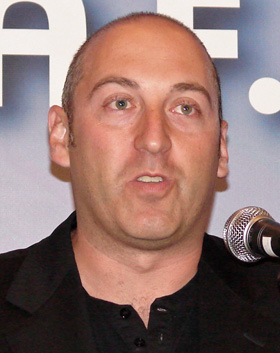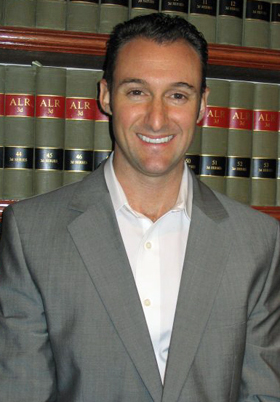|
Morgan
Linton,
Linton
Investments
|
Morgan
Linton is a man of many talents who is
known as a domain investor, developer, blogger
and serial entrepreneur. He is especially
active in the start up space, an area that
gives him a different perspective than many of
our other commentators have. Linton told us,
"One of the biggest trends in the domain
monetization space last year was the increased
focus on building brands rather than
thin content sites. While this transformation
started long before 2012, Google made
their biggest moves last year. Content that
was written just for search engines used to
work wonders, but in 2012 it saw its demise
along with backlinks from link directories and
forum profiles that had long provided strong
link juice to SEOs around the world. Targeting
exact-match domains Google was able to much
more easily filter out domains that had
been developed purely for monetization."
"To some this was devastating,
wiping out entire link networks and mini sites
that had dominated the first page of Google
for years," Linton noted. "For
others this was a major win as it
cleared many of the made-for-search sites out
of their way and created new ranking
opportunities. For domain investors I
think
|

Morgan
Linton |
| this change was incredibly positive since
exact-match domains with high quality content
and backlinks retained their rankings and in
many cases increased in ranking due to
some of their competitors being taken
out." |
"On the domain sales
side I think this also had an impact as many
investors that had been laser-focused on
exact-match domains started to look at
diversifying their portfolios. End-users heard
the news of Google's increased scrutiny of
exact-match domains and started to consider
other options as well. I think this made
one-words and brandables stronger
investments than ever due to the change in
perception by both investors and end-users
when it comes to exact-match domains,"
Linton said.
|

Confused
image from Bigstock |
"As Google was
making news about exact-match domains, new
gTLDs were also making headlines and
putting even more focus on the domain space.
In 2012 I think new gTLDs created more confusion
than anything. Domain Investors started to
question non .COM domains and end-users
started to question what role TLD played in
their domain buying decisions. The end result
of this confusion was a decrease in pricing
and liquidity in domains sold from one domain
investor to another. For those investors who
focused on end-users I think (at least from my
own experience) that 2012 was the best year
yet. In the end short, brandable .COM
domains won in 2012 and investors who put
their focus on end-users, rather than selling
to other investors reaped the rewards,"
Linton said.
|
Looking
ahead to 2013, Linton told us, "In 2013
new gTLDs will take center-stage calling
the value of TLD into question even more with
investors and end-users. I think this will
have a positive impact on .COM
as well as a few other gTLDs like .ME,
.CO, and .TV that have seen increased
interest from end-user buyers over the last
few years. I think this will have a negative
impact on .NET, .ORG and many
other gTLDs that are seen as less valuable to
end-users."
"I
don't think this means that .NET, .ORG and
other TLDs will lose all of their value, but I
do think that names in these TLDs will have to
be truly premium to sell," Linton
said. "I believe 2013 will see TLDs like
.ME, .IO, and .CO favored more and more by
startups over .NET and .ORG due to how popular
these have become for branding within the
space."
|
"In
2013 I think there are great opportunities in
short, brandable domains. I also think that
more and more Domainers will focus on selling
to end-users rather than other Domainers
as many investors are hesitant to buy until
the impact of the new gTLDs is known. If 2013
is anything like 2012 there will be more
opportunity than ever for Domainers that
focus on the buying the right names to see
some of their biggest sales yet," Linton
predicted.
"For
Domain Monetization I think 2013 will see an
even stronger shift away from MiniSites and
towards real online businesses. This
will mean that many investors will move from
running many small sites to running fewer
larger sites."
|

Domain
money image from Bigstock |
"As
with 2012, there are opportunities just about
everywhere you look in the Domaining world,
the challenge is focusing on the right
opportunities at the right time,"
Linton concluded.
Andrew
Miller, Digital Entrepreneur
|

Andrew
Miller |
Andrew
Miller is another believer is building
great domains into real businesses -
something he has had a successful hand in
doing with some of the best generic domains on
the web as detailed in a 2005 DN Journal Cover
Story. Miller told us, "The
most significant event in 2012, for domainers,
domain developers, digital entrepreneurs
and
operators of online businesses, was Google's
Penguin update. More than Panda or
any previous algorithmic change
by Google, Penguin affected so many
businesses and web properties," Miller
said.
"Penguin's
goal is to delineate and remove websites that Google
deems in violation of its Webmaster Guidelines
and general best practices. This is a
practice, also called black hat search
engine optimization, that is used by many
people and has historically been more
prevalent in the domain name development
space. However, Penguin also impacted sites
that are doing everything properly. One of the
sites I assist in overseeing is Chocolate.com.
Chocolate.com is a credible site, with over 5,000
chocolate products for |
|
sale directly from Chocolate.com. Chocolate.com is one of the
largest online chocolate gift marketplaces.
Penguin both negatively and positively
affected Chocolate.com." |
Miller
explained, "For years, we were ranked top
3 for the key word "chocolate".
Post Penguin, we are no longer on
page 1 of Google. However, we jumped to
the top rankings for many long tail
terms, such as "send chocolate Boston".
Having been through search algorithm changes
for years, I expect that once the new changes
brought forth by Penguin get sorted out,
Chocolate.com will benefit from Penguin
overall and rise back up the rankings for key
word search terms where it was adversely
impacted by Penguin.
"It
is Google's job to deliver a search result
that is the most relevant possible.
Assuming this is what is truly driving
Google's engineers if you continue to
have credible websites facilitating behavior that
already exists, you should survive and even flourish
from these changes. In another of my
businesses, FootballNation.com, there
are some search results at play that make me question
what is really driving Google.
As I am writing this, I searched the term
"fantasy football playoffs". The top 10 page one results Google served
me were all from one site, Bleacher
Report. As a consumer, that is not
what I want from Google. We see this over and
over, especially in our sports business.
Google's You Tube has a partnership
with Bleacher Report. Is it possible that
there are business aspects to the search
results at play? Let's hope not. In no circumstance
should one site result in the top 10 searches,
for stories that all read relatively the same.
Google is the most important driver of online audience
which in turn drives revenue. The
most important trend in the industry for
2013 is to understand how Google's changes
evolve and work, and if those of us who
use best practices see some benefit from
Google," Miller said.
|
Looking
ahead to the New Year Miller said, "In
the domain name industry, the challenge
continues to be one I have written about for
years, education of the marketing,
advertising, and senior management departments of
Madison Avenue and Corporate America.
Our own industry continues to take steps to
set itself back years. TLD's are
moneymakers for those who sell them, that is
for sure. However, any company that builds its
brand and online/mobile destination, or spends
dollars to drive audience, on anything other
than .COM (or .Org for non profits), is
making an irreversible mistake,"
Miller declared.
"If
you watch one full week of prime time
television, while reading national
|

2013
image from Bigstock |
| print
publications, driving by highway billboards,
and listening to radio, you may not see one
advertisement for a non .com. It is
SuperBowl.com, NFL.com, Walmart.com, Geico.com,
PurplePill.com, AmericanIdol.com and so on. Billions
of dollars a year are being spent branding
the .com. Other TLD's just reduce the value of
the .com and it is a conflict to many in the
domain industry to say this as selling TLDs
is big money," Miller said. |
"In
my category of sports content, the biggest
challenge is to create a reason for an end
user to come back to our websites. We drive
significant traffic to footballnation.com
through search results, links to our content,
and social media promotion of our content.
These readers come in to a story specific
page, not the home page, read the story and go
on their merry way. Our challenge is
how to we make FootballNation a daily, or even
just one time a week, destination for a
football fan, a scheduled weekly visit in
reader's busy calendars. The answer is not an
easy one and is a challenge facing all
publishers, big and small. I am excited for
our team to tackle this, no pun intended, in
2013," Miller concluded.
Braden
Pollock,
Founder,
Legal
Brand Marketing LLC
As
Andrew Miller noted above, domain development
is very hard work. That is why parking
and other forms of domain monetization will
always have their place, especially for those
with large domain portfolios. Braden
Pollock, who was profiled in our November
2011 Cover
Story, is one of the leading
proponents of lead generation as the antidote
to low PPC revenues.
|

Braden
Pollock
Founder, Legal Brand Marketing, LLC |
"Leadgen
has been steadily growing year over
year for a long time, but 2012 saw a lot more
progress in the space," Pollock told us.
"More advertisers are finding the value
in buying verified, quality leads
instead of (often times fraudulent) clicks.
Domainers have gotten squeezed by the Google-monster
so they’ve finally started looking for
alternative monetization in earnest. Leadgen
has always been a great option, despite
domainers reluctance to build out their
properties. In time, leadgen won’t be
considered “alternative”. It’ll become a
primary revenue driver in the domain
space, particularly as parking revenues
continue to decline. And they WILL
continue to decline," Pollock
predicted.
Looking
ahead to the new year, Pollock said, "Ongoing
Google algorithm changes will continue
to squeeze domainers, directories, travel
sites, review sites, finance sites, etc.
(Major investments by GoogleVentures in
RocketLawyer, LawPivot and
others will affect my business). The pressure
is on everyone standing between Google and the
advertiser," Pollock said.
"For
his entire life, my grandfather enjoyed a nice
upper-middle class lifestyle provided by his
typewriter repair shop. He hung in there as
long as he could until he retired. After forty
years
|
| fixing typewriters, he couldn’t bring
himself to learn how to repair printers or
PC’s. Passive parking revenue is dying.
If you’re relying on Google for your
revenue, it will continue to decrease
in 2013 and beyond. Google doesn’t need
nor want our industry – nor many others.
It’s time to re-evaluate your
portfolio and look for a new model. If
my grandfather was alive today, he’d tell
you that you can’t fix typewriters forever!," Pollock said. |
Howard
Neu,
Attorney
(NeuLaw.com)
& T.R.A.F.F.I.C.
Co-Founder
Attorney Howard Neu
is another industry veteran who skills cross
so many boundaries (as we detailed in an April
2009 Cover
Story profile about him) that he
could be considered the domain industry's
Renaissance Man. For this article we had him
put on his attorney's hat as protecting domain
owner's right is a battle that requires
constant vigilance.
Neu
said, "There were two significant
developments in the Domain Name Litigation
field in 2012:
1.
The URS
(Uniform Rapid Suspension) was not
adopted and in fact, found that there was
a great deal of opposition to the
formula of putting the burden on the
Respondent domain Name holder rather than the
Complainant Trademark holder. Though
everyone is in favor of speedy
"justice", the cost of presumption
that every Respondent Domain Name Registrant
is guilty until proven innocent does
not sit well with most people, with the
possible exception of CADNA.
2.
More and more UDRP Panels,
especially at WIPO, have been finding
Complainants abusing the process and guilty
of Reverse domain Name Hijacking (RDNH). Unfortunately,
only 2 panels in the past 6 months at NAF
have determined that a Complainant was guilty
of RDNH, but hopefully, this trend will
continue to become more "in vogue"
with these panels."
Looking
ahead to 2013, Neu said, "I'm a person
who generally sees the glass as half-full
rather than half-empty. Though I am
certainly nowhere near as good a
prognosticator as my
|

Howard
Neu |
| partner Rick Schwartz
- as my crystal ball is not as shiny as his -
I firmly believe that 2013 will be an
"up" year for Domainers. With
mainstream end users becoming more and more
familiar with domains and the traffic that
good ones can generate, I believe that both
sales and monetization of domains will be up." |
"By
the same token, there are always those that
want to get something for nothing and
will spend a few bucks filing a UDRP rather
than making a realistic offer to purchase a
good domain for their business. So I see
Ari Goldberger, John Berryhill, Karen
Bernstein, Zac Muscovitch and
myself staying pretty busy fighting for
our domain holders rights at WIPO and NAF,"
Neu concluded.
Paul
Goldstone,
Founder of Multiple Domain Based Businesses
|

Paul
Goldstone |
Domain
industry veteran Paul Goldstone has
founded well-known businesses that operate in
all corners of the domain industry. You can learn
about the business at www.iGoldrush.com,
find at www.DomainSearch.com,
register at www.DomainIt.com
and sell at www.SellDomains.com!
With his extensive experience in so many
areas, We thought Goldstone would be a good
man to anchor this year's State of the
Industry report. He also brings us full
circle. The first commentator talked about the
impact of new gTLDs and Goldstone started off
his commentary with his take on the same
topic.
"As
I look back on 2012, two trends that
stand out above all others are social media
and mobile apps. The domain industry
has only just scraped the surface in those
areas and I expect to see significantly more
movement in that direction throughout 2013. By
far though, the biggest development in
the domain industry this past year was ICANN
moving forward with new gTLDs. While
it's encouraging to see the increased exposure
in mainstream media outside
|
| of our industry, I
still feel that the average consumer is unsure
of what to expect from these changes and for
those that do, they don't seem overly excited"
Goldstone noted. |
"Did you know there are already 19
gTLDs (Generic Top Level Domains), such
as .com, .net, .org, plus those that the
average person has not heard of, such as
.info, .mobi, .travel, .pro, .museum. There
are also around 255 ccTLDs (Country
Code Top Level Domains), plus a number of
internationalized and other Top Level Domains.
That's 274 domain extensions, with the
majority share of registrations held by a small
minority. If you ask the average person to
name the extensions they are aware of, they
will likely say their country extension
(unless they're in the USA!) plus .com,
and possibly a couple of others,"
Goldstone said.
"Why have they
not heard of the other gTLDs? How have
those extensions failed where the 1000+ new
gTLDs will succeed?," Goldstone asked.
"Nobody has a crystal ball, but out of
the flood of new domain extensions I expect
only a handful, maybe only 1 or 2 of
the new gTLDs will hit big time, and
their success will be from a combination of
extension name, luck, timing, marketing and
money. The rest will have varying levels
of success and unfortunately, in many cases failure."
|
"One thing is for
sure, that the launch of new gTLDs in 2013
will be powered by new investors and
marketing, the likes of which we've not seen
before in this industry," Goldstone said.
"The single player 'guaranteed' to
turn a profit through all this is ICANN.
It'll be exciting to see how this plays out
and to see which extensions rise to the top.
It's also a given that trademark disputes
and UDRP filings will be at an all
time high throughout this period and
beyond."
"Due to the
continuously decreasing parking revenues,
potential of new gTLD launches, and individual
economic situations we have seen and
experienced a significant increase in
domain sales and I expect to see that
continue throughout 2013. Combined with the
trimming of over-inflated domain portfolios we
will see continued growth in the development
of web sites and social media as domainers
|

Domains
image from Bigstock |
| focus their efforts and favor targeted profit
making projects over the sit and wait approach,"
Goldstone predicted.
|
"Regardless of
what the market may bring, my personal
approach will be to stay diversified to
increase opportunity and to mitigate risk,
continue to partner with others because I'm
not a Jack of all trades, and bottom line, make
sure I enjoy what I'm doing. On the domain
front, we plan to further increase the
educational outreach from iGoldrush
with new how-to guides, and a revival of the
popular and highly requested monthly video
tutorials with Morgan Linton. DomainIt
will continue providing competitively
priced domains and a strong hosting platform
for the domain industry and we have several
other domain related projects in the pipeline."
"Change is
coming, so grab an axe, find your mine,
and take this opportunity to be a pioneer
in the latest Internet Goldrush!,"
Goldstone said with a smile in closing.
We will end with our
special hanks to all 15 industry
leaders who contributed their time and
expertise to this year's report. May they, and
you, all prosper in the new year head -
we sincerely hope it will be your best year
ever!
*****
|


















